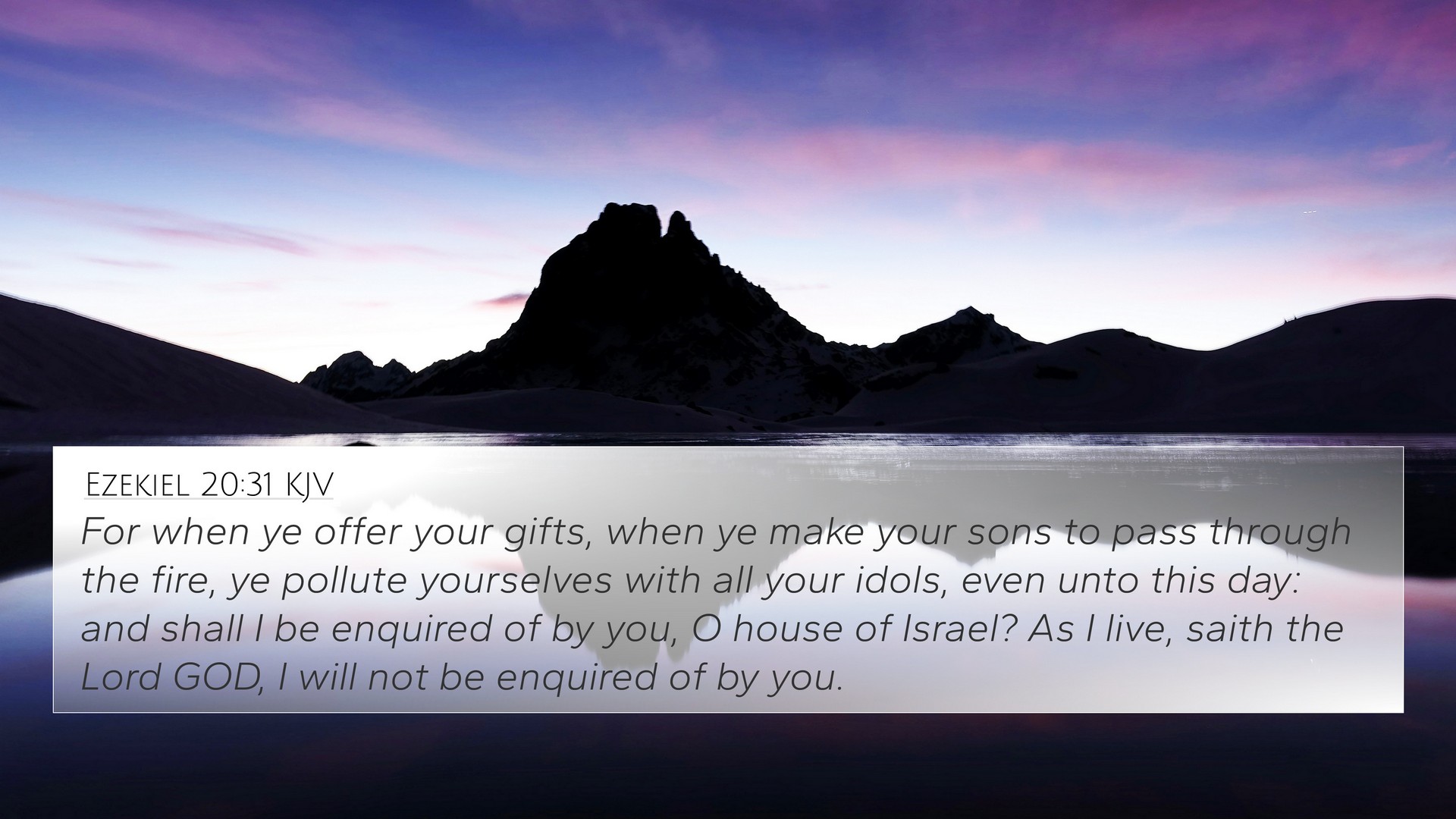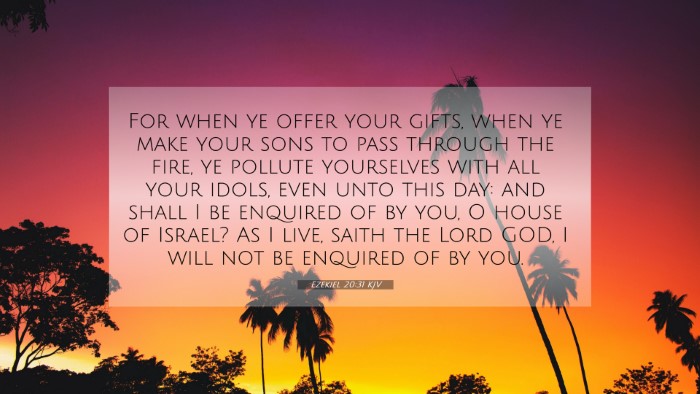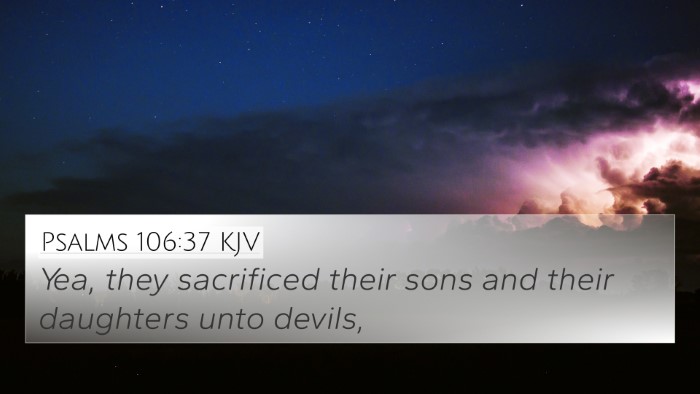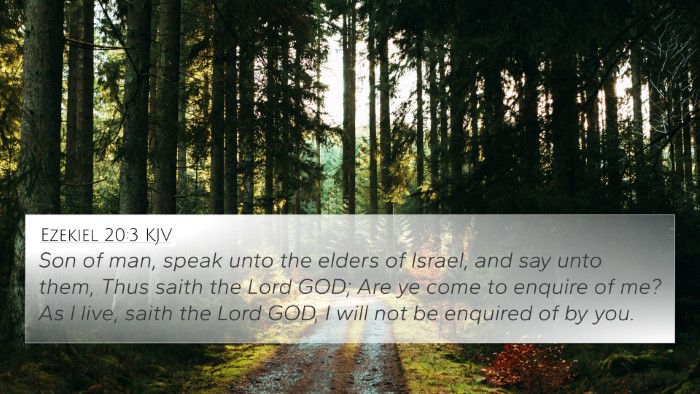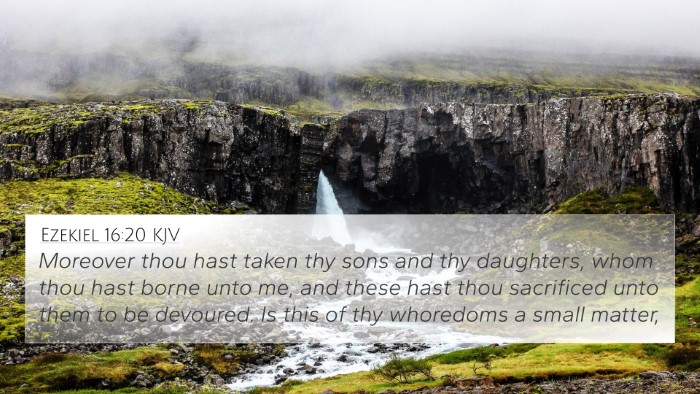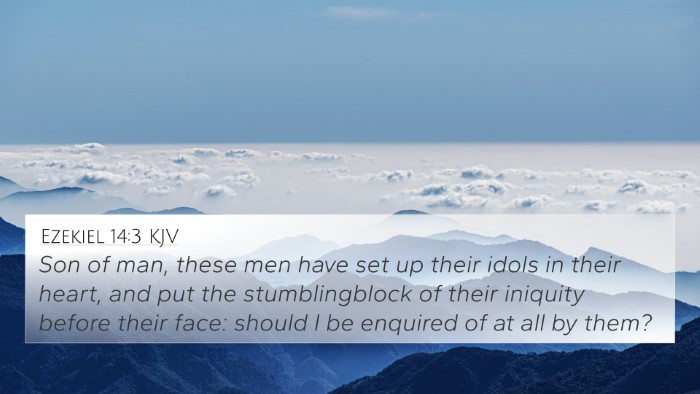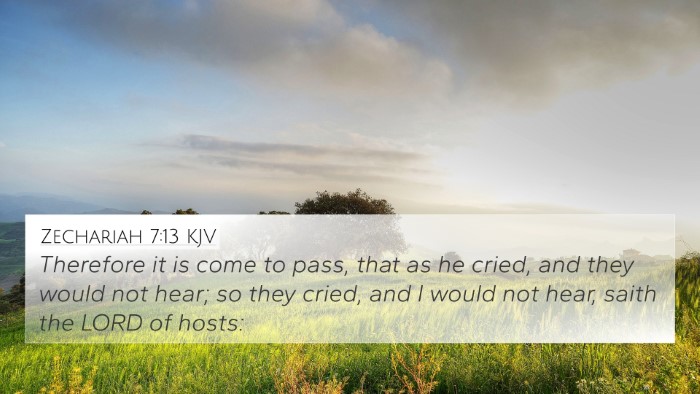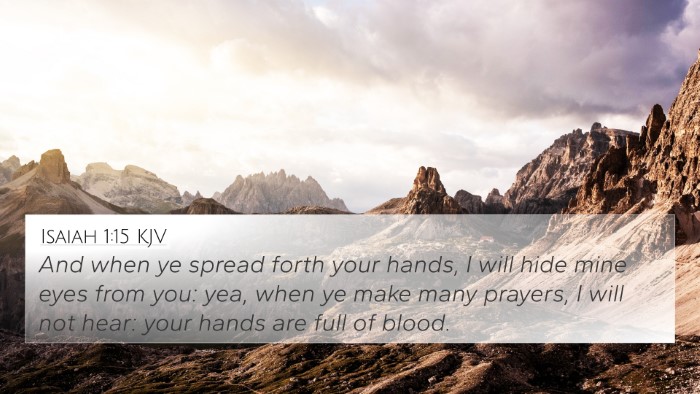Ezekiel 20:31 - Summary and Interpretation
The verse Ezekiel 20:31 states:
"And when you offer your gifts, when you make your sons pass through the fire, you defile yourselves with all your idols, even unto this day: and shall I be inquired of by you, O house of Israel? As I live, saith the Lord God, I will not be inquired of by you."
This passage conveys God’s displeasure towards Israel's idolatry and hypocrisy. To adequately understand this verse, we bring insights from esteemed public domain commentaries by Matthew Henry, Albert Barnes, and Adam Clarke, highlighting the main themes and underlying meanings.
Contextual Background
Ezekiel, a prophet during Israel’s Babylonian exile, addresses the issues of spiritual unfaithfulness and the importance of worshiping Yahweh alone. The idolatrous practices, like child sacrifice, which Israel engaged in, underline their rebellion against God's commands.
Key Interpretations
- Matthew Henry's Commentary:
Henry elucidates that this verse epitomizes the futility of seeking God while persisting in sin. He states that God cannot be treated lightly, as the Israelites did by attempting to mix worship with idolatry. The mention of making sons pass through the fire indicates their extreme betrayal of divine principles, showing a disregard for life and covenant with God.
- Albert Barnes' Notes:
Barnes comments on the audacity of Israel's expectation that they could inquire of God after engaging in such grievous sins. He emphasizes the separation God asserts; their offerings meant nothing in the face of their continual violations of His commandments. This indicates that God's silence and refusal to answer was both just and necessary for their spiritual awakening.
- Adam Clarke's Commentary:
Clarke focuses on the rhetorical nature of God’s question, highlighting Israel's presumption in thinking they could approach Him while indulging in idol worship. He describes their offerings as defiled and underscores the serious nature of their idolatrous acts as leading to a disconnection between them and God.
Spiritual Implications
This verse encourages believers today to examine their own hearts regarding idolatry, defined not just in terms of physical idols but as any competing priority to God. The ultimate message echoes throughout the scriptures that true worship must be aligned with a faithful heart.
Cross-References to Consider
- Leviticus 18:21: Addresses prohibitions against child sacrifice and the idea of making an offering to false gods.
- Jeremiah 7:31: Speaks of the detestable practices of the Israelites and their temple's defilement.
- Isaiah 1:15: God criticizing the people for their empty rituals amidst unrepentant lives.
- Matthew 15:8-9: Jesus quotes Isaiah about the people's lips honoring God while their hearts remain distant.
- Hosea 5:6: The idea of seeking God but meeting Him in their idolatry and impurity.
- Revelation 3:16: Becomes a call for the complacent to be zealous and repent, similar to God's invitation to Israel.
- Romans 12:1: The call for believers to offer their bodies as living sacrifices, contrasting the dead rituals of false worship.
Thematic Bible Connections
This scripture theme resonates throughout the Bible, from the Old Testament prophets to the New Testament teachings of Jesus and Paul, illustrating God's unyielding demand for purity and fidelity in worship.
Practical Applications
The essential questions that arise from studying Ezekiel 20:31 include evaluating what “idols” might exist in modern worship practices. Christians are urged to self-reflect and ensure their lives align with the principles of their faith. This passage serves as a guide for correct worship and an admonition against hypocrisy.
Conclusion
In understanding Ezekiel 20:31, believers are reminded of the serious consequences of idolatry and the importance of approaching God with sincerity of heart. It challenges the faithful to evaluate their worship and invest fully in their relationship with God, reclaiming the original intent of worship as a direct, untainted communication with the Creator.
Further Exploration
For those interested in Bible verse cross-references and understanding inter-Biblical dialogue, tools such as Bible concordance and Bible cross-reference guide could prove valuable. Engaging in cross-reference Bible study helps illuminate the deeper connections between scripture passages, enriching the study experience.
Closing Thought
Let Ezekiel 20:31 encourage you to foster a sincere relationship with God, devoid of any false idols—both ancient and modern. May we strive for worship that honors the Lord in truth and spirit.
